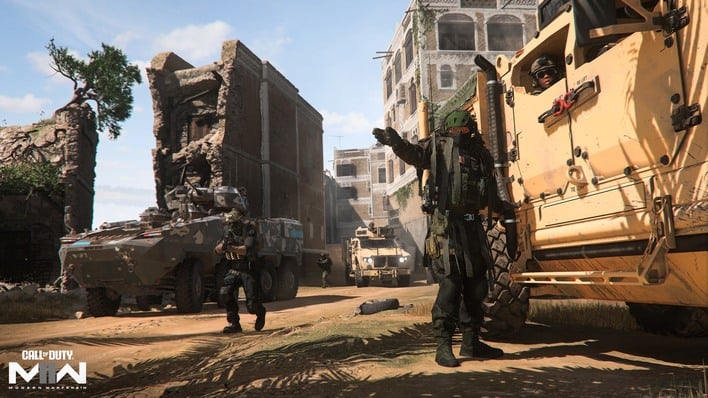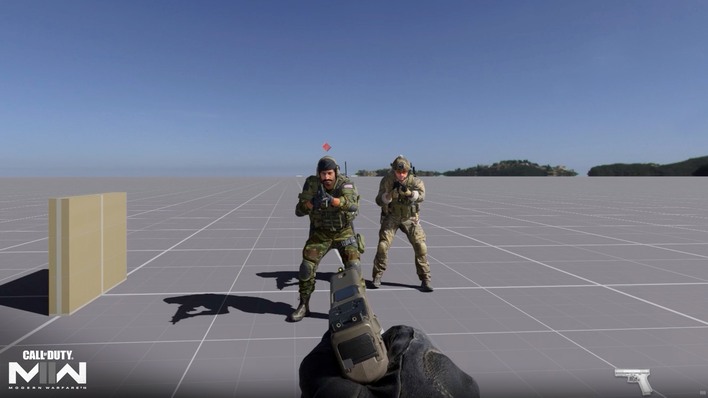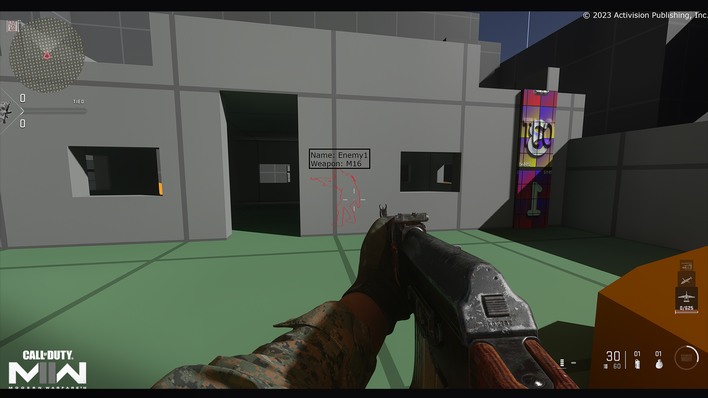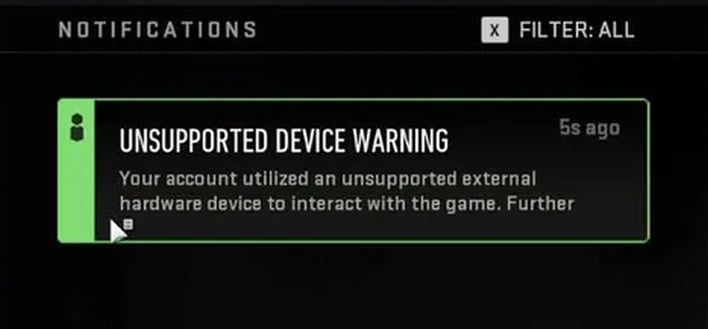Call Of Duty’s New Anti-Cheat Update Has Lame Gamers Hallucinating
Call of Duty may not be quite the cultural juggernaut that it was at one time, but it remains among the most popular FPS games around. There are reportedly more than a million PlayStation owners who literally only play Call of Duty. When your competitive game is that popular, there will naturally be a whole cottage industry of cheaters and folks willing to pay for the privilege of cheating.
In a blog post, Team Ricochet says that it has just deployed a new mitigation called "hallucinations." These are basically decoy players that don't show up at all for legitimate users. However, for cheaters, they move, look, interact, and react just like a real player. This isn't done through AI, but instead by capturing the movements and actions of real players during the match and then deploying those on a decoy character.
The group is also decommissioning one of its mitigations known as "quicksand." As you'd expect, this caused cheaters to move slowly or stop moving, and it could also do things like invert their movement controls, all with the goal of disorienting cheaters and making them sitting ducks for legitimate players. However, Team Ricochet says that it found the mitigation to have too much impact on legitimate players' experience, so it's being retired.
Team Ricochet launched an in-game notification, represented above, for players who were found to be using these devices. The group says that this measure resulted in a 59% drop in players using these devices on Modern Warfare II and Warzone, and that 57% of the players who were warned did not use them again.
Activision says that "repeat offenders and those continuing to use these devices have been penalized." No word on what that means exactly, but the company goes on to say that using this kind of third-party hardware may result in an account suspension or a permanent ban.
So saying, the Call of Duty franchise's anti-cheat measures are some of the best in the business, and that doesn't just mean having the best technology. It also includes clever methodology. You see, it's not good enough simply detect and then subsequently ban cheaters from your service. No, no—Call of Duty's "Team Ricochet", the developers behind its RICOCHET anti-cheat, want to waste cheaters' time and annoy them.
To this end, the developer deploys what it calls "mitigations" against players that are found to be cheating. These mitigations come in the form of modifications to the users' play experience that make it difficult or impossible to win. These include things like abruptly removing a weapon in combat, or making legitimate players invisible for a moment give cheaters a marked disadvantage even if they continue to cheat.
In a blog post, Team Ricochet says that it has just deployed a new mitigation called "hallucinations." These are basically decoy players that don't show up at all for legitimate users. However, for cheaters, they move, look, interact, and react just like a real player. This isn't done through AI, but instead by capturing the movements and actions of real players during the match and then deploying those on a decoy character.
What's really clever about these hallucinations is that, similar to the way Valve detected cheaters for Dota 2, cheaters' cheat utilities can't tell the difference between these "hallucinations" and a real player. That means that their tools will give them the same information about a decoy as a real player, and it really makes the cheater stand out as they stalk decoys through walls or headshot them with inhuman reflexes.
The group is also decommissioning one of its mitigations known as "quicksand." As you'd expect, this caused cheaters to move slowly or stop moving, and it could also do things like invert their movement controls, all with the goal of disorienting cheaters and making them sitting ducks for legitimate players. However, Team Ricochet says that it found the mitigation to have too much impact on legitimate players' experience, so it's being retired.
Finally, the anti-cheat developers gave a progress report on their fight against "third-party hardware devices." In this context, they're talking about devices like the XIM Apex or Matrix as well as the Cronus Zen. These devices allow console gamers to use macros as well as alternative input devices like keyboards and mice, and they're thought by game developers to give those players an unfair advantage over pad players.
Team Ricochet launched an in-game notification, represented above, for players who were found to be using these devices. The group says that this measure resulted in a 59% drop in players using these devices on Modern Warfare II and Warzone, and that 57% of the players who were warned did not use them again.
Activision says that "repeat offenders and those continuing to use these devices have been penalized." No word on what that means exactly, but the company goes on to say that using this kind of third-party hardware may result in an account suspension or a permanent ban.





